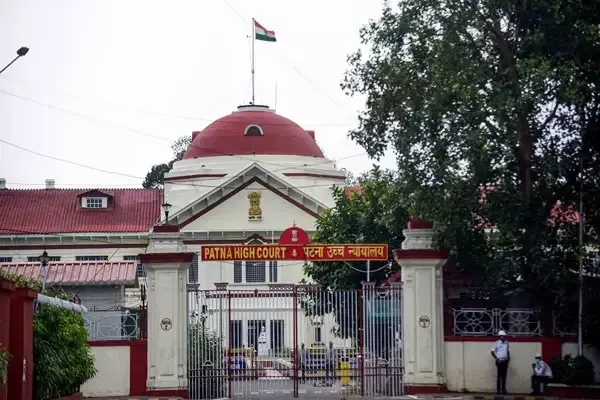In a recent judgment, the Patna High Court expressed severe disapproval of the Bihar Police's "lethargic and lackadaisical" handling of a sexual abuse case involving a 13-year-old American girl. Justice Bibek Chaudhuri emphasized that the police's conduct not only compromised the victim's pursuit of justice but also tarnished India's international reputation as a nation committed to justice and protection for all, as enshrined in the Constitution's preamble.
The case dates back to 2018 when the young victim was allegedly stalked and sexually abused by a local youth during her visit to India. Despite the gravity of the allegations, the victim's mother faced significant obstacles in seeking justice. Her initial attempt to file a complaint at the jurisdictional Mahila Police Station was rebuffed. It wasn't until September 2019 that the Darbhanga Town Police Station registered a case against the accused under Sections 354A, 354D, 504, and 506 of the Indian Penal Code. Notably, the Protection of Children from Sexual Offences (POCSO) Act was not invoked at that time, reflecting a serious oversight given the victim's age.
The court highlighted multiple deficiencies in the police investigation. There were significant delays and procedural lapses, and the chargesheet was filed in a perfunctory manner, lacking substantial evidence to support the victim's and her mother's statements. This inadequate approach prompted the victim's mother to file a protest petition, seeking a more thorough investigation and appropriate legal action against the accused.
A pivotal aspect of the case involved digital evidence. The accused had allegedly sent inappropriate messages to the victim and her parents via Facebook. When the victim's mother sought to submit these messages as evidence under Section 65B of the Indian Evidence Act, the Special POCSO Court in Darbhanga rejected her application. Challenging this decision, she filed a criminal writ petition in the Patna High Court.
In its ruling, the High Court underscored the importance of considering electronic evidence in cases of this nature. Justice Chaudhuri directed the Special Judge, POCSO Act, Darbhanga, to permit the submission of the relevant computer devices. The court mandated that an expert, facilitated by the Station House Officer (SHO), extract copies of the pertinent messages for scientific analysis. This process is to be completed within a month, adhering strictly to the procedures outlined in Section 65B of the Indian Evidence Act.
The court's decision to entertain the writ petition, despite it typically not being permissible against judicial orders, was driven by the imperative to protect the life and liberty of the minor victim and uphold the integrity of the Indian judicial system. This case serves as a stark reminder of the critical need for sensitivity, promptness, and diligence by law enforcement agencies, especially in matters involving vulnerable victims and international stakeholders.
The High Court's intervention aims to rectify the investigative shortcomings and ensure that justice is served, reinforcing the principle that procedural lapses and indifferent attitudes have no place in the pursuit of justice, particularly in cases that resonate beyond national borders.










0 Comments
Thank you for your response. It will help us to improve in the future.